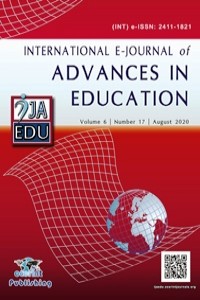PLANTS AND THEIR SEASONAL CHANGES: TEACHING BIOLOGY IN PRIMARY SCHOOL USING THE SCIENTIFIC METHOD
Abstract
With a view to the active learning, that makes the students protagonist, responsible and aware of the learning process, the present study presents an experimental work designed to demonstrate the usefulness and the validity of the scientific method as the basic element of the teaching of Life Sciences.
Scientific training adopts an inductive approach to knowledge that allows us to observe, imagine, discover, verify, generalize, providing the tools needed to understand the reality. This research focused on the study of seasonality in the first class of a Primary School in Treviso (Italy), using a teaching approach based on direct field exploration and planning activities in which the sensory perceptual aspect is only the starting point. Those activities were based on both the observational comparative method (characteristic of Evolutionary Biology), and the experimental method (a feature of Functional Biology).
Prior to the experimental out a preliminary investigation work was carried, involving the teachers of Natural Sciences and Experimental of some Italian Primary Schools. This survey allowed to paint a partial picture of how it the teaching of the Biology is performed, with particular reference to the seasonality, which was the starting point to develop and test a didactic approach of adequate originality.
The addressed topics were divided in four stages corresponding to the seasons, and covered aspects of plant morphology (leafs, vascular tissues, flowers, fruits), plant physiology (the color changes of the leafs, leaf abscission, plant nutrition, fruit development) and the concept of biodiversity.
The obtained results showed that, using the scientific method and laboratory tools such as the stereoscope and the optical microscope, conceptualizations planned for second cycle of the Primary School can be met with success in the first class, helping to reach the programmed goals optimally and often excellently, facilitating the achievement of competences such as the use of a correct scientific nomenclature. With this approach, the young students were motivated, stimulated, intrigued, and this potentially provides a meaningful, authentic and transferable Lifelong Learning and the development of a scientific culture together with an early interest in the Sciences.
Keywords
laboratory didactics life sciences primary school musculoskeletal system, scientific method
References
- Zandonella Necca, I., Tamino, G. & Santovito, G. (2014) Sustainable food: an educational proposal, for key stage 3 in secondary schools, based on the assessment for learning method. In: EDULEARN14 Proceedings, IATED, Valencia, pp 7348-7356.
Abstract
References
- Zandonella Necca, I., Tamino, G. & Santovito, G. (2014) Sustainable food: an educational proposal, for key stage 3 in secondary schools, based on the assessment for learning method. In: EDULEARN14 Proceedings, IATED, Valencia, pp 7348-7356.
Details
| Primary Language | English |
|---|---|
| Subjects | Other Fields of Education |
| Journal Section | Articles |
| Authors | |
| Publication Date | September 14, 2020 |
| Submission Date | June 23, 2020 |
| Published in Issue | Year 2020 Volume: 6 Issue: 17 |
Published and Sponsored by OCERINT International © 2015 - 2025
Contact: ijaedujournal@hotmail.com
International E-Journal of Advances in Education by IJAEDU is licensed under a Creative Commons Attribution-NonCommercial 4.0 International License. Permissions beyond the scope of this license may be available at http://ijaedu.ocerintjournals.org


